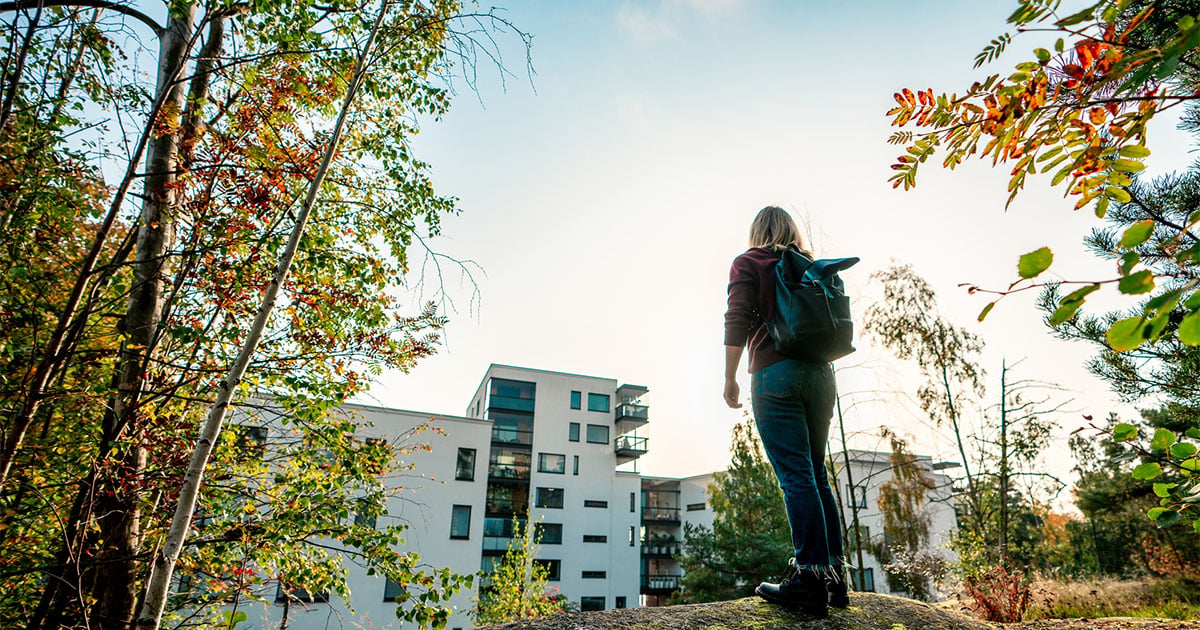
Helen to cooperate with Heka – aiming for a flexible heating system in residential buildings
Helen and Helsingin kaupungin asunnot Oy (Heka) have signed an agreement with the purpose of developing the district heating system as well as optimising the energy consumption of residents and Helen’s production. In this pilot project, heating control systems will be installed in Heka’s residential buildings to bring energy savings and increase district heating demand response.
Helen’s heat production relies increasingly on renewable electricity. Heating boilers and heat storages add flexibility to the heating system, but consumers also play a significant role in balancing the consumption peaks of electrifying heat production. During the last couple of years, Finnish electricity users have shifted their consumption to hours when the price of electricity is lower, which has benefitted the entire electricity system. The heating system will also benefit from the similar operating model in the future.
“The majority of residential buildings are occasionally overheated, which increases energy consumption and, simultaneously, leads to higher district heating invoices. Overheating takes place particularly on sunny spring days. Together with Heka, we are developing digital competence to save energy, reduce carbon dioxide emissions and reduce production costs,” says Timo Aaltonen, SVP, Heating and cooling at Helen.
Helen will integrate Heka’s properties into the energy system, which will control the heating systems of Heka’s properties. Helen’s flexible solution pays attention to the indoor and outdoor temperatures as well as to solar radiation and directs the customer’s heating system in order to prevent overheating. The system will adjust the temperature according to the indoor temperature changes for a maximum of half a degree in both directions, which means that the customer’s living comfort is not affected.
For Heka, this flexibility bring cost savings and energy usage that is more sustainable for the environment. The key goal is to reduce carbon dioxide emissions without compromising living comfort or carefree heating. At the initial stage, the project will include 250 Heka properties. The energy saving resulting from this equals the annual energy consumption of up to 15 apartment buildings.
“Heka is a significant consumer of district heating in Helsinki, so our measures will have a major impact throughout the entire city. Through demand response, we can affect Helen’s heat production needs and contribute to carbon-neutral district heating. For us, this is also a cost-efficient way to save energy and related costs without compromising living comfort,” says Vesa Jurmu, Property Director at Heka.
District heating to take great leaps towards carbon neutrality
Helen’s goal is to make a reduction of at least 60% in greenhouse gas emissions this year and a reduction of 80% next year when compared to 1990. This reduction goal will be reached by adopting electric boilers, sustainably produced bioenergy and electricity-powered heat pumps in district heating production.
“In 2025, we will abandon the use of coal altogether when the coal-based CHP production at the Salmisaari power plant ends and the plant is decommissioned. We have set a target of making our energy production carbon neutral by 2030 and, in the longer term, we also plan to phase out combustion-based energy production,” says Aaltonen.